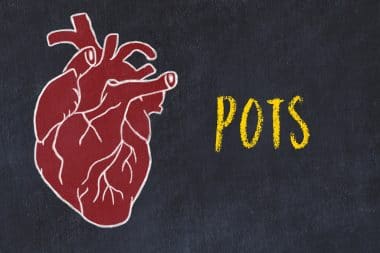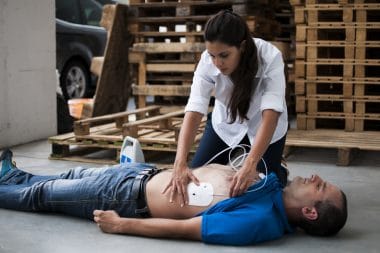Your Resting Heart Rate (RHR) is your heart rate upon waking in the morning, before you get out of bed and start your breakfast, shower and commute to work. Studies are now finding that your Resting Heart Rate is an indicator of your basic fitness level and a strong predictor of cardiovascular health.
Normal Adult Range is 60-80 Beats per Minute (bpm)
Athletes Range is 35-50 bpm
The better shape you are in the fewer beats per minute.
Checking your Resting Heart Rate is a painless way to check your health. Upon waking for 3 consecutive mornings take your RHR. You need to determine heart beats per minute. You can do that by counting your heart beats for 10 seconds and multiplying that number by 6. Take your 3 different days’ numbers add them together and divide by 3. This will give you a Resting Heart Rate number. If you can”t accurately find your pulse a blood pressure monitor often reports heart beats per minute. The best results will be upon waking, if that is not possible make sure your rest quietly and de-stress for at least 15 minutes before determining your beats per minute.
Your RHR tells you lots about your cardiovascular health. Having a high RHR is a risk factor independent of other risk factors such as; hypertension, diabetes, and smoking. So paying attention to our RHR while effortless in determining; is important.
Cardiovascular Disease (CVD) is the #1 killer in the United States for men and women in all ethnic groups. It is the leading cause of death for all Americans over the age of 35. Cardiovascular Disease kills 10 times more women every year than breast cancer. In the same way that women self-check their breast for lumps we should all do a quick RHR check monthly too. You not only want to keep your RHR number low but you also want to watch for increases in your RHR number which may be a sign that something isn”t working like it should.
Higher Resting Heart Rates can indicate atherosclerosis (hardening of the arteries) and also restrictions in the diameter of your blood vessels. When your heart is forced to work harder because of these two conditions it can wear out faster. Talk with your doctor for a RHR over 80.
Things that elevate your heart rate: smoking, exercise, caffeine, cold medications, stress, lack of activity, and weight.
The good news is your heart is a muscle! And muscles can be made stronger through exercise. Regular aerobic exercise will make your heart stronger and make it operate more efficiently. The American Heart Association recommends exercise that increases your heart rate between 50% and 75% of your maximum heart rate for 30 minutes most days of the week.
Your Action Steps:
- 1Use the Target Heart Rate Calculator to determine your heart rate goal levels during exercise.
- 2You need to determine heart beats per minute.
- 3Get a quality heart rate monitor like the Schosche, it is awesome.





